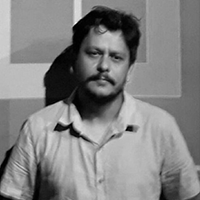
Alessandro Roberto de Oliveira (UnB)
Adjunct professor at the Faculty of Education of the University of Brasília (FE / UnB). Research at Professional Master in Sustainability with Traditional Peoples and Territories (MESPT) and in the PPG in Social Anthropology at the UFG. Develops research on the themes-areas: traditional ecological knowledge, with emphasis on human-plant relationships via anthropology of technique. Anthropology and Education.
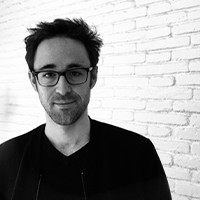
Aníbal G. Arregui (Universidad de Barcelona)
I am an anthropologist interested in the corporeal interaction between humans and other-than-human as an ethnographic lens into processes of social, economic and ecological transformation. Since 2006 I conduct fieldwork in Amazonia in quilombola (Maroon) and riberinho (traditional populations living near rivers) territory (Pará, Brazil). In 2017 I started a new fieldwork to study the emerging relations between humans and wild boars in the periphery of Barcelona. Currently I am a postdoctoral researcher at the Department of Social Anthropology of the University of Barcelona, and a research associate at the BOAR-ERC project of the Czech Academy of Sciences.
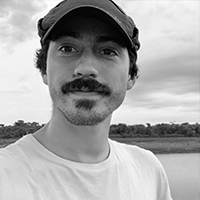
Bernardo Leal (UnB)
Holds a Master’s degree in Social Anthropology (Department of Anthropology at the University of Brasília – UnB), and is a member of the Laboratory of Anthropology of Science and Technology – Lact. He has researched the socio-technical relations between humans and machines and fish domestication practices in fish farms in the Cerrado biome.
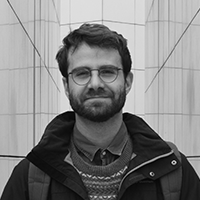
Caetano Sordi (IPHAN/UFRGS)
Has a PhD in Social Anthropology (Federal University of Rio Grande do Sul, Brazil – UFRGS). He currently works at the National Institute of Historic and Artistic Heritage (IPHAN) in Brazil and He is also a post-doctoral researcher at the Department of Anthropology (UFRGS). His research focuses on Human-Animal Relations, Anthropology of Techniques, Environment and Society, Biosecurity and Anthropology of Food.
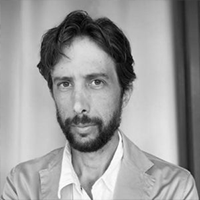
Carlos Sautchuk (UnB)
Carlos Emanuel Sautchuk is Associate Professor at the Department of Anthropology, University of Brasilia, Brazil, where he coordinates the Laboratory of Anthropology of Science and Technique. He is also an associate member of the group Anthropologie de la vie et des représentations du vivant (LAS, Collège de France). Since 2004 he has been carrying out ethnographic fieldwork in the Amazon on fishing, nature conservation and fish domestication. He has edited the book Técnica e transformação: perspectivas antropológicas (ABA Publicações, 2017). He has also produced and written about video and photography in ethnography.
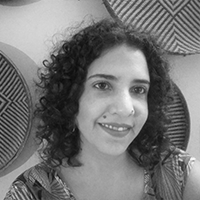
Clarisse Jabur (UnB)
She has been working with indigenous peoples since 2000, mainly with several Yanomami subgroups. FUNAI’s indigenist, worked as a public policy manager for indigenous peoples of recent contact, carrying out direct and indirect projects with different indigenous peoples. Currently a doctoral student at PPGAS/UnB, she conducts research on the techniques used by “sertanistas”/”indigenistas” in the relationship with isolated indigenous peoples.
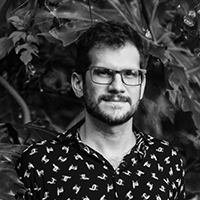
Eduardo Di Deus (UnB)
Adjunct professor (assistant professor) at the Faculty of Education of the University of Brasília (FE / UnB) and researcher at PPG in Education – Professional Modality. He holds an Anthropology PhD (from the same institution), and is interested in the following areas: anthropology of techniques, learning, work, rural studies, human-plant relations, environmental education.
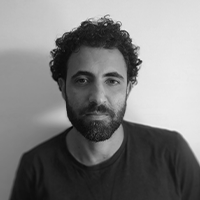
Fabiano Campelo Bechelany (Unifesspa)
Assistant Professor of Anthropology at the Universidade Federal do Sul e Sudeste do Pará (Unifesspa). He obtained his PhD from the Department of Anthropology of the Universidade de Brasília (UnB). He conducts research with indigenous people and other traditional people and has experience in the anthropology of technics, humans and non-humans relations, land and territory studies.
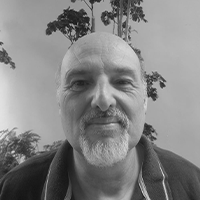
Fábio Mura (UFPB)
Holds a Master’s degree in Social Anthropology and is also a Social Anthropology PhD (National Museum/Federal University of Rio de Janeiro). Coordinated the Commission on Indigenous Affairs of the Brazilian Anthropological Association in the 2019/2020 administration and is also a member of the current board of this association. Carries out research among the Kaiowa, Tabajara and Potiguara peoples, focusing on territorial dynamics, traditions of knowledge, sociotechnical processes as well as, currently, management of vital flows.
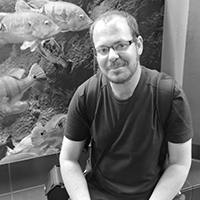
Felipe Vander Velden (UFSCAR)
Felipe Vander Velden is an associate professor at the Federal University of São Carlos (UFSCar). He holds a PhD in social anthropology (UNICAMP, 2010) and was guest researcher at Aarhus University (Denmark) and University of Leiden (Netherlands). He has been developing research among the Karitiana in southwestern Brazilian Amazonia since 2002, focusing on subjects as hunting, domestication, animal husbandry, animal trafficking and human-animal relations in general.
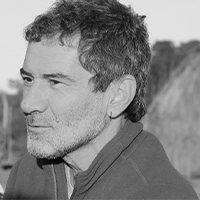
Gilton Mendes dos Santos (UFAM)
Has a degree in Agronomy (Federal University of Mato Grosso – UFMT), holds a master’s degree in Anthropology (University of Campinas – UNICAMP) and is a University of São Paulo (USP) PhD. He is currently a professor at the Department of Anthropology of the Federal University of Amazonas (UFAM), where he stimulates and monitors the production of knowledge by indigenous students and develops research on wild and cultivated plants and their different uses and technologies employed by Amazonian groups.
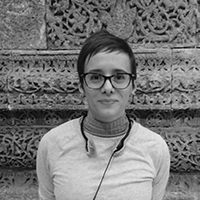
Graciela Froehlich (UnB)
Graciela Froehlich is a Research Fellow of the Laboratory of Anthropology of Science and Technique (LACT) at the University of Brasilia. She has a PhD in Social Anthropology from the same university (2016) and develops studies interested in the relationship between cultures and natures, humans and non-humans, by conducting research focused on livestock and the production of beef.
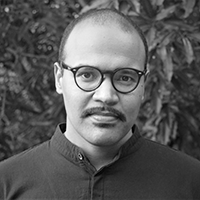
Guilherme Moura Fagundes (UnB)
I am currently a PNPD / CAPES postdoctoral fellow at the Graduate Program in Social Anthropology at the University of Brasília. I work mainly in the fields of anthropology of technique and life, with na emphasis on the role of techniques in the mediation between life forms and forms of life. Since 2014 I have been conducting research on the introduction of integrated fire management in Brazil, focusing on the pilot experience of the Cerrado, in the company of environmental managers, firefighters and quilombola communities in the Jalapão.
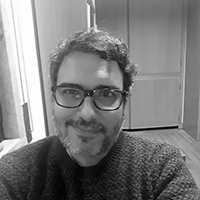
Guilherme Sá (UnB)
PhD in Social Anthropology at Museu Nacional/UFRJ (2006) and professor at the Department of Anthropology at UnB. His researches focus on anthropology of science and technology, human-animal relatioships, environmental anthropology and anthropology of nature, with special interest on rewilding iniciatives.
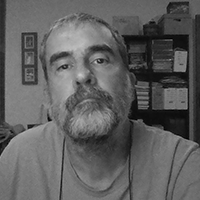
Henyo Barreto (UnB)
PhD in Social Anthropology at USP (2001), I was professor in the Department of Social Sciences at UFAM (1990-94) and Program Manager at the International Institute of Education of Brazil (2005-16). I am Full Professor at the Department of Anthropology at UnB. In my academic track, I studied indigenous lands and protected areas.
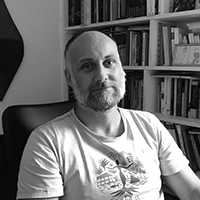
Jeremy Deturche (UFSC)
Teacher in the Department of Anthropology and in the Program of Masters degree in Social Anthropology of UFSC (Federal University of Santa Catarina). His PhD is base on fieldwork with the Katukina of the Southwest of the State of Amazon (Brazil). Your analytical interests navigate among an anthropology of the technique, of action and analitical question about practice and crafts/ abilities / skill His presente research involves now agricultural technical systems and the relationship with the animals in the domestication processes, especificaly in tecnical mediation.
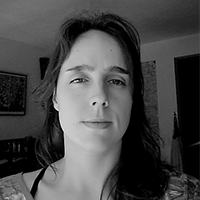
Joana Cabral de Oliveira (Unicamp)
Master and PhD in Social Anthropology at USP, Post-Doctorate by the Institute of Biosciences at USP, Professor at the Department of Anthropology at Unicamp, I carry out my research in the areas of indigenous ethnology and anthropology of science on botanical knowledge.
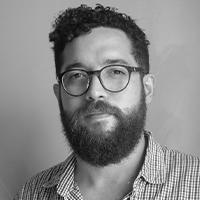
Jorge Luan Teixeira (UVA)
Professor at the Universidade Estadual Vale do Acaraú (UVA). Has a BA in Social Sciences (UFC). Teixeira obtained his MA and is also PhD in Social Anthropology (National Museum/Federal University of Rio de Janeiro – UFRJ). He conducts research in the sertão (hinterlands) of the State of Ceará (Brazil) with rural populations, focusing on ethical and technical aspects of their relations towards animals and the environment.
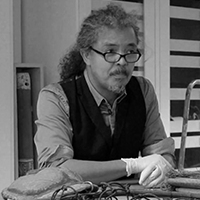
Ludovic Coupaye (UCL)
Ludovic Coupaye is Associate Professor in the Department of Anthropology of University College London, where he research and teach on the anthropology of technics and technology. His fieldwork in Papua New Guinea led to the publication of Growing Artefacts, Displaying Relationships: Yams, Art and Technology amongst the Nyamikum Abelam of Papua New Guinea (2013, Berghahn Books), and he currently work on the relation between technics and environments.
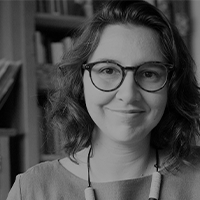
Magda dos Santos Ribeiro (UFMG)
Professor at the Graduate Program in Anthropology at the Department of Anthropology and Archaeology of the Federal University of Minas Gerais, Brasil. She is also a fellow researcher at the Laboratory of Anthropology of Socio-technical Controversies – LACS/UFMG. Her research seeks to understand the relationship between the so-called traditional knowledge and techno-scientific practices through a comparative perspective.

Natasha Myers (York University)
Natasha Myers is an associate professor in the Department of Anthropology at York University, director of the Plant Studies Collaboratory, convener of the Politics of Evidence Working Group, co-founder of Toronto’s Technoscience Salon, and accomplice to Toronto’s Indigenous Land Stewardship Circle. Her current ethnographic projects speculate on the contours of the Planthroposcene, with investigations spanning the arts and sciences of vegetal sensing and sentience, the politics of gardens, and the enduring colonial violence of restoration ecology. Since 2015 she has been working with dancer and filmmaker Ayelen Liberona on Becoming Sensor.
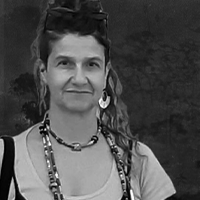
Nurit Bensusan (ISA)
Faced with the fact that our species have proven to be a debacle, I have given up being a human being nonetheless, I am still a biologist who works at Instituto Socioambiental with biodiversity conservation public policies and access and use of genetic resources and traditional knowledge. 15 books about ecological issues have been published under my name, and among them, nine are children’s books. I have also designed and produced more than 10 games that use environmental topics.
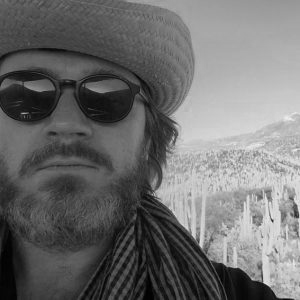
Perig Pitrou (CNRS/LAS)
Perig Pitrou is an anthropologist, senior researcher in the CNRS. He leads the team « Anthropology of Life » in the Laboratoire d’Anthropologie Sociale, Collège de France/ Paris Sciences and Letters University. He is the author of Le chemin et le champ. Sacrifice et parcours rituel chez les Mixe de Oaxaca (Mexique) and the co-editor of the book La noción de vida en Mesoamérica (CEMCA-UNAM, 2011). In the framework of the several interdisciplinary programs, he has published 10 collective books and special issues, and published more than 30 papers in the field of the Anthropology of Life.
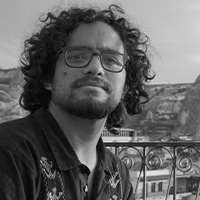
Radamés Villagómez Reséndiz (UNAM)
Ph. D. in Mesoamerican Studies (Anthropology) at UNAM, Mexico, has ethnographic experience with Nahuas communities in Mexico and with Kichwas peasants in Ecuador. Currently, is a Post-doc at CRIM UNAM and is developing a research project about territorial ordering and local knowledge in Morelos, Mexico. Is also interested in the characterization of local technologies as emergent forms of life and knowledge
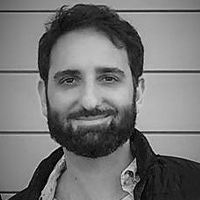
Rodrigo C. Bulamah (UNIFESP)
PhD in Social Anthropology and Ethnology (State University of Campinas and EHESS). He is currently a FAPESP post-doctoral fellow in the Graduate Program in Social Sciences at the Federal University of São Paulo. His work is located in the interface between anthropology and history and he dedicates himself to themes such as kinship, political ecology, mobility, and religion.
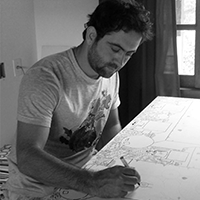
Rodrigo Godá
R.Godá (1980) is an artist from Goiânia, Brazil. He has already exhibited his “Tropical Surrealism” in the main Brazilian capitals, as well as Havana / Cuba, Santiago / Chile, Buenos Aires / Argentina and Rome / Italy. He has accumulated several awards in his career. It is part of the collection of the Museum of Modern Art of Rio de Janeiro-Gilberto Chateaubriand Collection. Contact: rgoda1980@yahoo.com.br; @rodrigo_goda.

Teresa Castro (Université Sorbonne Nouvelle)
Teresa Castro is Associate Professor in Film Studies at the Université Sorbonne Nouvelle, Paris. A significant part of her recent research focuses on the links between film and animism, eco-criticism and vegetal life forms in visual culture. She recently co-edited the book Puissance du végétal et cinéma animiste. La vitalité révélée par la technique (Dijon, Presses du réel, 2020).
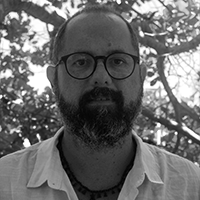
Thiago Cardoso (UFAM)
Doctor in Social Anthropology (UFSC). Professor of the Post-Graduate Program in Social Anthropology (UFAM), researcher at CoLar – Laboratory of Anthropology of Life, Ecology and Politics and at NEAI – Nucleus for Studies of the Indigenous Amazon.
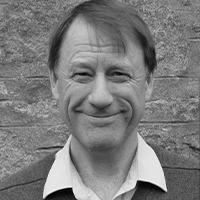
Tim Ingold (University of Aberdeen)
Tim Ingold is Professor Emeritus of Social Anthropology at the University of Aberdeen. He has carried out fieldwork among Saami and Finnish people in Lapland, and has written on environment, technology and social organisation in the circumpolar North, on animals in human society, and on human ecology and evolutionary theory. His more recent work
explores environmental perception and skilled practice. Ingold’s current interests lie on the interface between anthropology, archaeology, art and architecture. His recent books include. The Perception of the Environment (2000), Lines (2007), Being Alive (2011), Making (2013), The Life of Lines (2015), Anthropology and/as Education (2018), Anthropology: Why it Matters (2018) and Correspondences (2020).
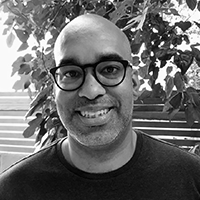
Uirá Garcia (UNIFESP)
Uirá is a social Anthropologist and a professor at the Federal University of São Paulo (UNIFESP). He is the author of Awa-Guajá: crônicas de caça e criação/ Awa-Guajá: chronicles of hunting and rearing (2018 / São Paulo: Hedra), a book about the ways of knowing and experience in Amazon hunting. He has been conducting research with the Awa-Guajá people, and is interested in learning about the animals, hunting and the forest, focusing on different ways of “hunting”, “rearing/creating” and “management”. He is a member of the Centro de Estudos Ameríndios (CEstA) from the University of São Paulo (USP), and of the Núcleo de Antropologia Simétrica (NAnSi) from Museu Nacional/UFRJ. He was a visiting scholar at the University of California-Davis in 2019.
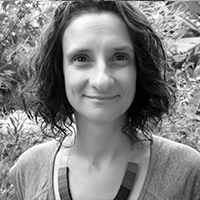
Viviane Vedana (UFSC)
Professor of Anthropology at the Federal University of Santa Catarina where she works as a researcher at the Collective of Studies in Environments, Perceptions and Practices (CANOA). She is interested in the technical systems of production and commercialization and the disturbances of capitalism in landscapes and practices.